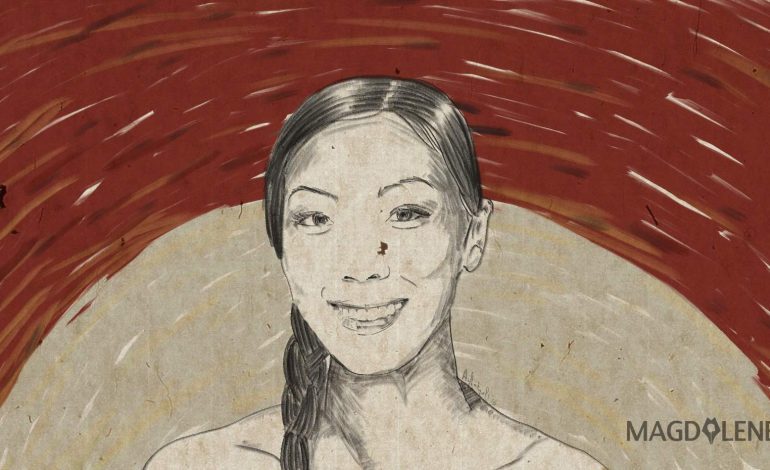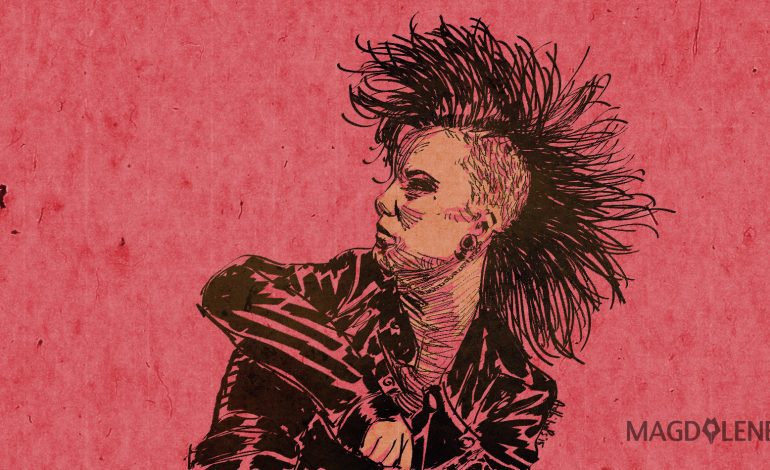I am ‘Cina’ and, Really, That’s Not a Taboo

One beautiful day, I woke up after pulling an all-nighter for my final paper. Despite being super groggy, my FOMO demanded to connect to the outer world as soon as possible, so I scrolled through a chat group of students of my university major.
It was a group of 200 people and I didn’t really know the majority of them. Most of the time the chat group was filled with irrelevant jokes, condolences for passing relatives and job openings. We were in our last year and most of us had graduated, so we frequently shared job openings and work opportunities through the group.
That morning someone had posted a “work opportunity” in China, with lengthy requirement. The catch was: it’s written in Chinese. This, of course, was meant to be a joke. I personally found it quite funny: seeing a promising job only to realize that you would never be qualified because you couldn’t even read the qualification. Moreover, someone later told us that the “qualifications” were actually just copy-pasted from some random Internet article that has possibly gone through Google Translate.
But then an interesting thing happened. Someone reacted strongly against it. She took the joke as offensive, and accused the person who posted it as being racist.
Upon reading her comment, I scrolled back up to see if maybe I had missed any racial joke or inappropriate slur. I found nothing. She actually deemed that it was racist to share something in Chinese. I didn’t know anything about her to understand the motive behind her action. Perhaps she thought she was being thoughtful by defending some people that might get offended by the joke.
But, ironically, it’s her comment that I found offensive and racist.
Racism is real in Indonesia. The racial tension between the Chinese and the local ethnicities has a long history in this country and even today you can see hints of it here and there. Racial tensions predated Indonesia’s independence and continued after, with the most violent one in recent history occurring during the May 1998 riots that led to the fall of the three-decade rule of the New Order.
Seventeen years have past, and racial conflicts have slowly faded. Most of my best friends on campus are not Chinese, and they are the nicest people I know. I have never experienced any discrimination against me for being Chinese, and I had thought racism was a past issue. Of course I can’t speak for everybody, because we all have different upbringing and life experiences. But for the most of it, I am glad that the lines between both races are blurring. We are simply Indonesians.
And then the above “racism” exchanges happened.
Most of us know that racism is a social issue that needs to be addressed. No educated person would gladly admit to being racist. This was what the girl was doing, protecting the ethnic Chinese people in the whatsapp group and ensuring that the conversation continues in a civil manner. But, again, I just can’t understand why posting something in Chinese characters – a written language used by the whole country of China, not to mention Taiwan and diaspora Chinese – could be deemed racist. If it were written in Russian or Indian characters, I doubt it would be called racist.
This took me to an event a few years back when I overheard someone talking about Chinese people in Indonesia and feeling the necessity to apologize for it.
“Mereka orang, maaf, Cina,” the person said, basically saying: they were, sorry, Chinese.
I understand that the word Cina had a negative connotation and was used as an insult in the past. But, dear God, it’s just a word. Saying “sorry when mentioning a race is like saying “pardon” before uttering a swear word. It was confusing to me why “Cina” was taken as an insult, when it’s just used in a statement to refer to a fact.
People use euphemism for the word Cina, even the government issued a statement to use the word Tionghoa instead of Cina when referring to Chinese people, whether they’re Indonesian or non-Indonesians. I find this unacceptable. The word Tionghoa comes from Hokkien dialect, and as a Hakka, I have never related myself to it. I have never even heard the word spoken in my big family who fluently speaks Khek, the language of Hakka people. The word is as strange to me as peranakan (mixed Chinese descent) or WNI Keturunan (Indonesian of mix descents).
Honestly, I am perfectly fine if people use the word Cina instead of Tionghoa to identify my race, because that’s who I am. And if somebody feels uncomfortable about using the word Cina on me, it’s a sign that he/she agrees that it’s derogatory and that my identity is equivalent to an inappropriate curse word.
I’m okay if you identify me as a “Cina” but I’m not okay if you think that talking about my heritage is taboo. Because feeling sorry for my race is an act of racism itself.
All in all, I have a great respect for anyone who tries to maintain the equilibrium of society. In fact, I’m going to give you a minority insider’s tip: we are not a taboo. Meet us, greet us and befriend us. Know our background and let us laugh together at some of the ridiculous superstitions existing in both our cultures. Learn day-to-day lingos that you’ll quickly adapt to because of how accurately descriptive they can be (like sekia and lancai). Do not be afraid to use the word Cina to describe us, as long as it is said matter-of-factly, without negative connotation.
And to my Chinese friends, get out of your bubble and start to live in multiculturalism. Stop living in the telltale terrors of our grandparents. Our identity is not a forbidden topic. Remember that you are Cina, and there is absolutely nothing wrong with it. We shall not be oppressed by stigmas, and the easiest way to do it is by simply proving that they are not true.
Septhiria Chandra enjoys spending time with her dog a little bit too much. You can easily tell this from her Snapchat story. She recently graduated from Universitas Indonesia with Communication degree.






















